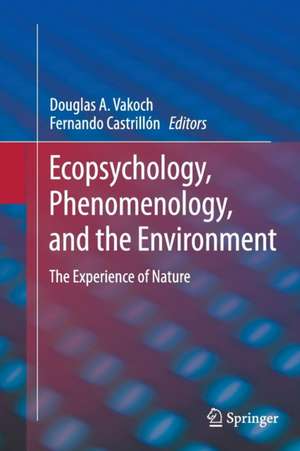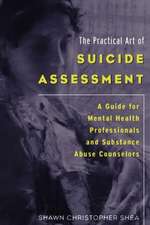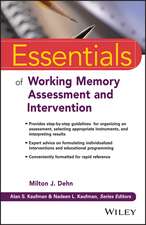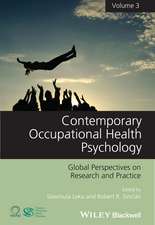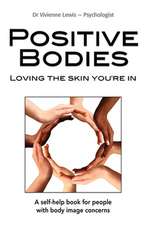Ecopsychology, Phenomenology, and the Environment: The Experience of Nature
Editat de Douglas A. Vakoch, Fernando Castrillónen Limba Engleză Paperback – 27 aug 2016
| Toate formatele și edițiile | Preț | Express |
|---|---|---|
| Paperback (1) | 640.24 lei 43-57 zile | |
| Springer – 27 aug 2016 | 640.24 lei 43-57 zile | |
| Hardback (1) | 640.85 lei 43-57 zile | |
| Springer – 18 feb 2014 | 640.85 lei 43-57 zile |
Preț: 640.24 lei
Preț vechi: 753.22 lei
-15% Nou
Puncte Express: 960
Preț estimativ în valută:
122.51€ • 128.25$ • 101.37£
122.51€ • 128.25$ • 101.37£
Carte tipărită la comandă
Livrare economică 07-21 aprilie
Preluare comenzi: 021 569.72.76
Specificații
ISBN-13: 9781493953950
ISBN-10: 1493953958
Pagini: 289
Ilustrații: XXIV, 265 p. 10 illus.
Dimensiuni: 155 x 235 x 15 mm
Greutate: 0.41 kg
Ediția:Softcover reprint of the original 1st ed. 2014
Editura: Springer
Colecția Springer
Locul publicării:New York, NY, United States
ISBN-10: 1493953958
Pagini: 289
Ilustrații: XXIV, 265 p. 10 illus.
Dimensiuni: 155 x 235 x 15 mm
Greutate: 0.41 kg
Ediția:Softcover reprint of the original 1st ed. 2014
Editura: Springer
Colecția Springer
Locul publicării:New York, NY, United States
Cuprins
Introduction.- Intimacy, Otherness and Alienation: The Intertwining of Nature and Consciousness.- Mountain Reflections: Reverence for the Consciousness of Nature.- Diamond in the Rough: An Exploration of Aliveness and Transformation in Wilderness.- Intimate Responsivity As Our Shared Essence-Calling-Path-Fruition: Eco(psycho)logical Ethics Via Zen Buddhist Phenomenology.- The Naturalist’s Presence: Notes Toward a Relational Phenomenology of Attention and Meaning.- Nomadic Dimensions of Education with the Earth-in-Mind.- A Phenomenology of Intimate Relating and Identification with the Whole (And the Tale of the Woefully Misguided Aspirations of the Common Land Barnacle).- The Who of Environmental Ethics: Phenomenology and the Moral Self.- Elemental Imagination: Deconstructive Phenomenology and the Sense of Environmental Ethics.- Geologic Soul: An Ethic of Underworld Force.- Climate Chaos, Eco-Psychology and the Maturing Human Being.- Apocalyptic Imagination and the Silence of the Elements.- Eros of Erosion: The Shaping of an Archetypal Geology.- The Invisibility of Nature: Garbage, Play-Forts and the Deterritorialization of Urban Nature Spaces.- Lorecasting the Weather: Unhumanizing Phenomenology for Decoding the Language of Earth.
Recenzii
"The collection of essays in Ecopsychology, Phenomenology, and the Environment: The Experience of Nature helps to expand the epistemological and methodological approaches that are so well suited for the interdisciplinary field of ecopsychology. Like many of its antecedents (e.g., Abram, 1996; Roszak, 2001; Roszak, Gomes, & Kanner, 1995; van Gennep, 1961), it will appeal to readers curious about the interplay of nature, consciousness, and psyche, and to those specifically interested in climate change, environmental ethics, public health, or phenomenological knowing...What I liked most about it, apart from some really beautiful writing, is its mature approach to suffering and the wildness of our nature, as part of the great chain of being. There is a cogent argument that we must address our sense of separateness from the world that holds us. I believe that readers will come away with an expanded sense of identity, and with a sense of calmness about what can be done and how one might go about contributing."
Barbara Landon
PsycCRITIQUES
November 10, 2014, Vol. 59, No. 45, Article 2
Barbara Landon
PsycCRITIQUES
November 10, 2014, Vol. 59, No. 45, Article 2
Notă biografică
Douglas A. Vakoch, Ph.D.
Douglas A. Vakoch is Professor of Clinical Psychology at the California Institute of Integral Studies as well as Director of Interstellar Message Composition at the SETI Institute. His books cover fields ranging from psychology and ecocriticism to anthropology and space sciences and include Psychology of Space Exploration: Contemporary Research in Historical Perspective (NASA, 2011); On Orbit and Beyond: Psychological Perspectives on Human Spaceflight (Springer, 2012); Ecofeminism and Rhetoric: Critical Perspectives on Sex, Technology, and Discourse (Berghahn, 2011); Feminist Ecocriticism: Environment, Women, and Literature (Lexington, 2012); Altruism in Cross-Cultural Perspective (Springer, 2013); Extraterrestrial Altruism: Evolution and Ethics in the Cosmos (Springer, 2013); and Astrobiology, History, and Society: Life Beyond Earth and the Impact of Discovery (Springer, 2013). Dr. Vakoch serves as general editor for Lexington Books’ Ecocritical Theory and Practice Series and for Springer’s Space and Society Series. He also co-edited, with Fernando Castrillon, a special double issue of the peer-reviewed journal ReVision on ecopsychology. Prior to earning a Ph.D. in clinical psychology from the State University of New York at Stony Brook, he received an M.A. in history and philosophy of science from the University of Notre Dame, where he focused on contemporary continental philosophy of psychology. He may be reached at dvakoch@ciis.edu, telephone (415) 575-6244, Department of Clinical Psychology, California Institute of Integral Studies, 1453 Mission Street, San Francisco, CA 94103, USA; or at dvakoch@seti.org, telephone (650) 960-4514, Center for SETI Research, SETI Institute, 189 Bernardo Avenue, Mountain View, CA 94043, USA.
Fernando Castrillon, Psy.D.
Fernando Castrillon, Psy.D., earned a masters in sociology from theUniversity of California where he was a National Science Foundation Graduate Research Fellow, and a doctorate in clinical psychology from the California Institute of Integral Studies (CIIS) and is a licensed clinical psychologist. He is Associate Professor in the Community Mental Health Department at CIIS and is the founding Director of CIIS’ The Clinic Without Walls, an innovative psychotherapy clinic serving mostly working poor and immigrant communities who would otherwise not have access to mental health services.
Dr. Castrillon is also a candidate psychoanalyst with the Lacanian School of Psychoanalysis in Berkeley, California and has served on the editorial boards of the journals Ecopsychology and Universitas Psychologica, among others. His clinical, teaching and research interests include the production of subjectivity (both human and more-than-human) psychoanalysis, community mental health, ecopsychology, radical social theory, schizoanalysis, cosmology, entheogens, violent political movements, war, terrorism and revolution. With Doug Vakoch, he edited a special double issue of the peer-reviewed journal ReVision, entitled “Ecopsychology.” Dr. Castrillon maintains a private psychoanalytic practice in the San Francisco Bay Area. Address: California Institute of Integral Studies, 1453 Mission Street, San Francisco, California, 94103. He may be reached at (510) 295-4711 or view his webpage: www.drcastrillon.com.
Douglas A. Vakoch is Professor of Clinical Psychology at the California Institute of Integral Studies as well as Director of Interstellar Message Composition at the SETI Institute. His books cover fields ranging from psychology and ecocriticism to anthropology and space sciences and include Psychology of Space Exploration: Contemporary Research in Historical Perspective (NASA, 2011); On Orbit and Beyond: Psychological Perspectives on Human Spaceflight (Springer, 2012); Ecofeminism and Rhetoric: Critical Perspectives on Sex, Technology, and Discourse (Berghahn, 2011); Feminist Ecocriticism: Environment, Women, and Literature (Lexington, 2012); Altruism in Cross-Cultural Perspective (Springer, 2013); Extraterrestrial Altruism: Evolution and Ethics in the Cosmos (Springer, 2013); and Astrobiology, History, and Society: Life Beyond Earth and the Impact of Discovery (Springer, 2013). Dr. Vakoch serves as general editor for Lexington Books’ Ecocritical Theory and Practice Series and for Springer’s Space and Society Series. He also co-edited, with Fernando Castrillon, a special double issue of the peer-reviewed journal ReVision on ecopsychology. Prior to earning a Ph.D. in clinical psychology from the State University of New York at Stony Brook, he received an M.A. in history and philosophy of science from the University of Notre Dame, where he focused on contemporary continental philosophy of psychology. He may be reached at dvakoch@ciis.edu, telephone (415) 575-6244, Department of Clinical Psychology, California Institute of Integral Studies, 1453 Mission Street, San Francisco, CA 94103, USA; or at dvakoch@seti.org, telephone (650) 960-4514, Center for SETI Research, SETI Institute, 189 Bernardo Avenue, Mountain View, CA 94043, USA.
Fernando Castrillon, Psy.D.
Fernando Castrillon, Psy.D., earned a masters in sociology from theUniversity of California where he was a National Science Foundation Graduate Research Fellow, and a doctorate in clinical psychology from the California Institute of Integral Studies (CIIS) and is a licensed clinical psychologist. He is Associate Professor in the Community Mental Health Department at CIIS and is the founding Director of CIIS’ The Clinic Without Walls, an innovative psychotherapy clinic serving mostly working poor and immigrant communities who would otherwise not have access to mental health services.
Dr. Castrillon is also a candidate psychoanalyst with the Lacanian School of Psychoanalysis in Berkeley, California and has served on the editorial boards of the journals Ecopsychology and Universitas Psychologica, among others. His clinical, teaching and research interests include the production of subjectivity (both human and more-than-human) psychoanalysis, community mental health, ecopsychology, radical social theory, schizoanalysis, cosmology, entheogens, violent political movements, war, terrorism and revolution. With Doug Vakoch, he edited a special double issue of the peer-reviewed journal ReVision, entitled “Ecopsychology.” Dr. Castrillon maintains a private psychoanalytic practice in the San Francisco Bay Area. Address: California Institute of Integral Studies, 1453 Mission Street, San Francisco, California, 94103. He may be reached at (510) 295-4711 or view his webpage: www.drcastrillon.com.
Textul de pe ultima copertă
A significant step in the evolution of ecopsychology has been the field’s growing awareness of its long-standing affinity with phenomenology. Now, at a time when the natural world is viewed as somewhere between threatening, threatened, and invisible, an examination of the often implicit bond between these two spheres of inquiry makes increasing sense.
Ecopsychology, Phenomenology, and the Environment: The Experience of Nature explores the intersection of the two disciplines through a diverse group of ecological thinkers. Emphasizing the directly felt experience of the wild as opposed to overtly scientific approaches, this evocative volume presents fresh perspectives on the intimacy of nature, environmentally-related morals and ethics, and the realities engendered by climate change. With profound vision and lyrical elegance, contributors reveal the transformative power of the natural world and its expansive effects on our senses and consciousness. And perhaps most notably, these chapters challenge us as humans to revise how we understand ourselves in relation to the rest of nature.
Included in the coverage:
Ecopsychology, Phenomenology, and the Environment: The Experience of Nature explores the intersection of the two disciplines through a diverse group of ecological thinkers. Emphasizing the directly felt experience of the wild as opposed to overtly scientific approaches, this evocative volume presents fresh perspectives on the intimacy of nature, environmentally-related morals and ethics, and the realities engendered by climate change. With profound vision and lyrical elegance, contributors reveal the transformative power of the natural world and its expansive effects on our senses and consciousness. And perhaps most notably, these chapters challenge us as humans to revise how we understand ourselves in relation to the rest of nature.
Included in the coverage:
- The naturalist’s presence: toward a relational phenomenology of attention and meaning.
- Aliveness and transformation in wilderness.
- Apocalyptic imagination and the silence of the elements.
- The who of environmental ethics: phenomenology and the moral self.
- Climate chaos, ecopsychology, and the maturing human being.
- Unhumanizing phenomenology to decode the language of Earth.
Caracteristici
Explores environmental issues through wilderness retreats, naturalist‘s forest walks and organic gardening Identifies new foundations for environmental ethics that promote sustainability Finds commonalities between Eastern and Western psychological and contemplative traditions Includes supplementary material: sn.pub/extras
